Filter by
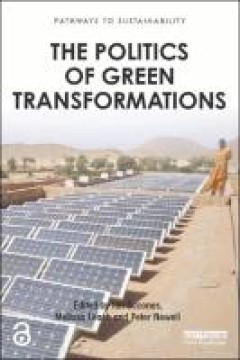
The politics of green transformations
Multiple ‘green transformations’ are required if humanity is to live sustainably on planet Earth. Recalling past transformations, this book examines what makes the current challenge different, and especially urgent. It examines how green transformations must take place in the context of the particular moments of capitalist development, and in relation to particular alliances. The role of th…
- Edition
- -
- ISBN/ISSN
- 9781315747378
- Collation
- xv, 238 p. : ill.
- Series Title
- -
- Call Number
- 320.58 SCO t
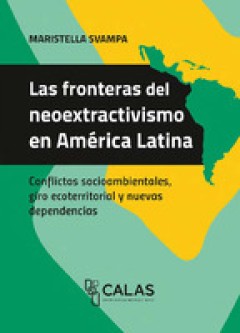
Las fronteras del neoextractivismo en américa latina : conflictos socioambie…
This book analyzes the progress of neoextractivism in Latin America through four fundamental nuclei: the first proposes the categories of neoextractivism and Consensus of Commodities as privileged windows to read the current crisis; the second analyzes the phases of neoextractivism from 2003 to the present; the third addresses the social resistance and the new political grammars from the concep…
- Edition
- -
- ISBN/ISSN
- 9783837645262
- Collation
- 144. p.
- Series Title
- -
- Call Number
- 303.6098. MAR l
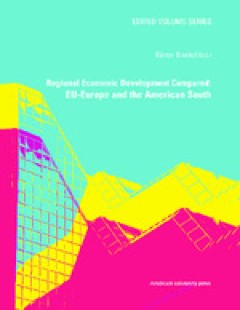
Regional economic development compared : eu-europe and the american south
"Comparing economic development in a regional context both in the South of the United States and in the European Union today raises many fascinating questions. How much money in the form of tax credits and subsidies should communities and states invest to attract foreign investors in the U.S.? Should individual states and communities in the U.S. commit public funds in the form of tax money and …
- Edition
- -
- ISBN/ISSN
- 9783902936424
- Collation
- ill. ;104 p.
- Series Title
- -
- Call Number
- 338.94. GUN r
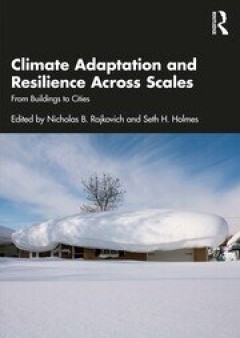
Climate adaptation and resilience across scales : from buildings to cities
Climate Adaptation and Resilience Across Scales provides professionals with guidance on adapting the built environment to a changing climate. This edited volume brings together practitioners and researchers to discuss climate-related resilience from the building to the city scale. This book highlights North American cases that deal with issues such as climate projections, public health, adaptiv…
- Edition
- -
- ISBN/ISSN
- 9781003030720
- Collation
- xxii, 264p. : ill.
- Series Title
- -
- Call Number
- 338.927 RAJ c
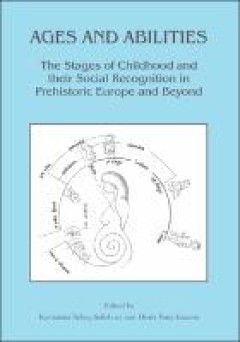
Ages and abilities : the stages of childhood and their social recognition in …
Ages and Abilities explores social responses to childhood stages from the late Neolithic to Classical Antiquity in Central Europe and the Mediterranean and includes cross-cultural comparison to expand the theoretical and methodological framework. By comparing osteological and archaeological evidence, as well as integrating images and texts, authors consider whether childhood age classes are arc…
- Edition
- -
- ISBN/ISSN
- 9781789697698
- Collation
- xi. ;ill. :265 p.
- Series Title
- -
- Call Number
- 305.2310936 SAL a
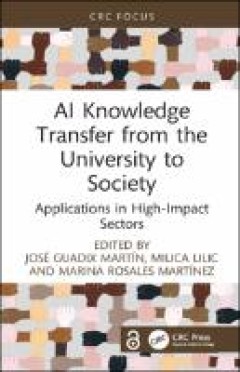
AI Knowledge Transfer from the University to Society : Applications in High-I…
AI Knowledge Transfer from the University to Society: Applications in High-Impact Sectors brings together examples from the "Innovative Ecosystem with Artificial Intelligence for Andalusia 2025" project at the University of Seville, a series of sub-projects composed of research groups and different institutions or companies that explore the use of Artificial Intelligence in a variety of high-im…
- Edition
- -
- ISBN/ISSN
- 9781003276609
- Collation
- 148p. ; ill.
- Series Title
- -
- Call Number
- 006.3 JOS a

Deals and development : the political dynamics of growth episodes
"International financial crises have plagued the world in recent decades, including the Latin American debt crisis of the 1980s, the East Asian crisis of the late twentieth century, and the global financial crisis of 2007-09. One of the basic problems faced during these crises is the lack of adequate preventive mechanisms, as well as insufficient instruments to finance countries in crisis and t…
- Edition
- -
- ISBN/ISSN
- 9780198801641
- Collation
- xxv, 335 p. : bnw, ill.
- Series Title
- -
- Call Number
- 338.90091724 WER d
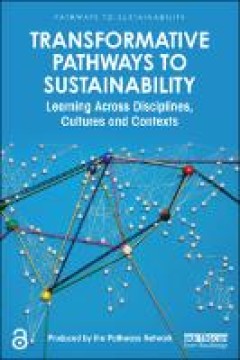
Transformative pathways to sustainability : learning across disciplines, cult…
Transformations to sustainability are increasingly the focus of research and policy discussions around the Sustainable Development Goals. However, the different roles played by transdisciplinary research in contributing to social transformations across diverse settings have been neglected in the literature. Transformative Pathways to Sustainability responds to this gap by presenting a set of co…
- Edition
- -
- ISBN/ISSN
- 9780429331930
- Collation
- xxviii, 237 p. : ill
- Series Title
- Pathways to Sustainability
- Call Number
- 338.927 THE t
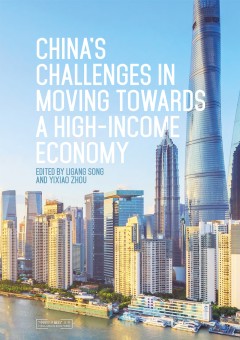
China's challenges in moving towards a high-income economy
With its per capita income surpassing US$10,000, China has now drawn up ambitious plans to further lift its income to the level of developed countries. Yet various constraints need to be overcome if China is to build on the achievements of the last 40 years and further boost its growth potential. Besides these constraints, the year 2020 saw human societies hit heavily by the COVID-19 pandemic a…
- Edition
- -
- ISBN/ISSN
- 9781760464530
- Collation
- xv, 232 p. : ill
- Series Title
- -
- Call Number
- 330.951 SON c

Multilateral banks and the development process : vital links in the results c…
A chain is only as strong as its weakest link. When the links in the chain represent development projects, if individual projects fail to achieve their purpose, the development program's effectiveness is compromised. When the chain's links are strong and well-connected, the results are improved for the sector, country, and region. The role of multilateral banks is crucial; they inform the impac…
- Edition
- -
- ISBN/ISSN
- 9781412847674
- Collation
- xxi, 153 p. : bnw, ill.
- Series Title
- -
- Call Number
- 332.153091724 THO m
 Computer Science, Information & General Works
Computer Science, Information & General Works  Philosophy & Psychology
Philosophy & Psychology  Religion
Religion  Social Sciences
Social Sciences  Language
Language  Pure Science
Pure Science  Applied Sciences
Applied Sciences  Art & Recreation
Art & Recreation  Literature
Literature  History & Geography
History & Geography